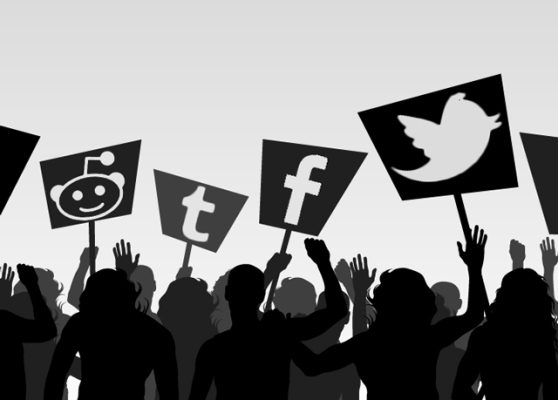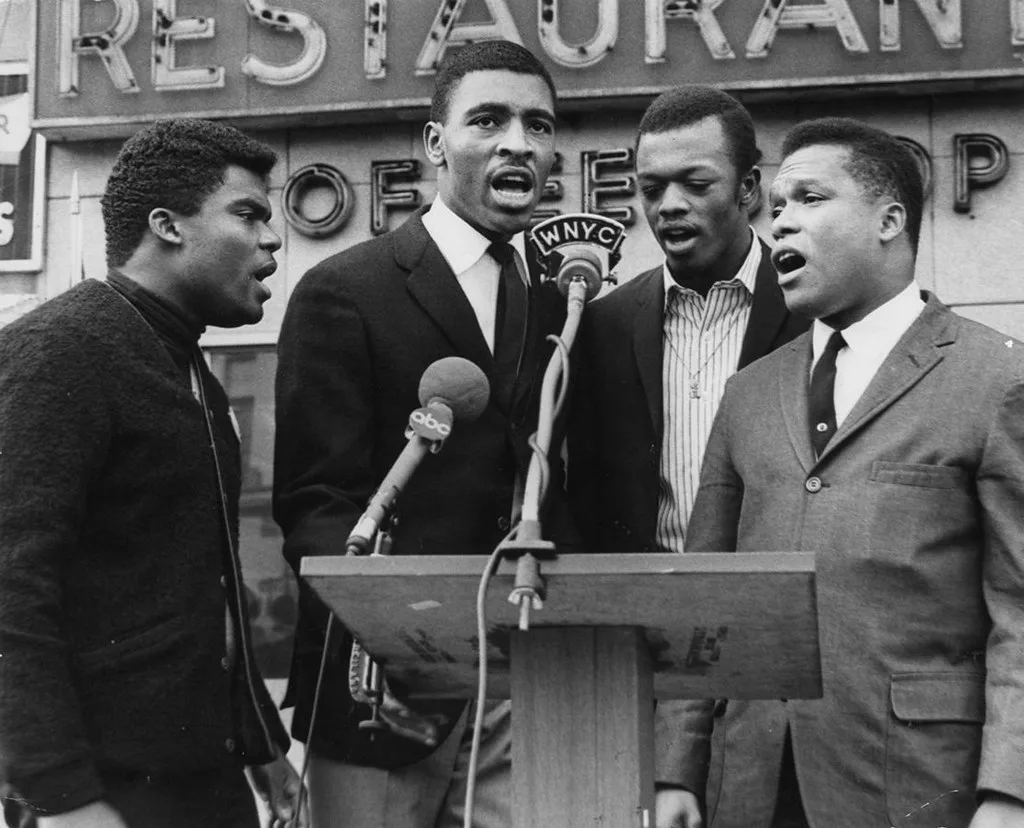Free speech under heavy attack in Georgia via both legal and governmental actions. But not only Georgia – in hundreds of actions all around the country.
Police-tech partnerships could instantly blackout both phone and all social media access

One danger of mass internet communication being channeled through private companies – like Facebook – is the possibility that our communications can be severely curtailed, especially when we try to organize. Consider public protests: How easily could they be labeled as acts of terrorism by those with the ability to cut us off from communicating with each other? Especially in an era where police have become increasingly militarized and people have become accustomed to using corporate-owned online environments with the expectation of having free speech or privacy protection rights when we do, this possibility becomes disturbingly real.
In actuality, we have no such rights on social media platforms. In fact, I’ve not only witnessed Facebook censor people’s communications, it happened to me. Free Press’ Timothy Karr explains why trying to organize via private online services subjects us to much more control than we think it does:
“Hosting your political movement on YouTube is a little like trying to hold a rally in a shopping mall, writes Ethan Zuckerman of MIT’s Center for Civic Media. “It looks like a public space, but it’s not – it’s a private space, and your use of it is governed by an agreement that works harder to protect YouTube’s fiscal viability than to protect your rights of free speech.”
The same can be said for Facebook, Twitter and most every other application protesters and journalists use. Zuckerman compares social media executives to “benevolent despots” who use corporate terms of service – not First Amendment principles – to govern their decision-making about content.
To be more accountable and transparent to users, these platforms must allow a full public view of every decision to block content. And these sites should invite feedback from users as a check against abuses.
Verizon pushes court to rule that “free speech” equals suppression
“…suppress someone else’s ability to transmit or receive information.
…Here’s the twist: Verizon clearly knows better. Its joint statement with Google about the prospect of open-Internet rules in early 2010 stated: “The minute that anyone, whether from the government or the private sector, starts to control how people access and use the Internet would be the beginning of the end of the ‘net as we know it.”
…While Verizon’s free-speech claim might seem too loony to be taken seriously, the U.S. Supreme Court’s 2010 landmark Citizens United ruling brought corporate rights to a new level. In that case, the high court struck down campaign laws that restricted the ability of corporations, labor unions and other groups to spend money on ads promoting or opposing candidates. In a 5-4 ruling, the majority held that the ban was an unconstitutional infringement on free speech.
…The FCC suggested its rule would prevent a service provider from blocking voice and video competitors such as Skype or Netflix. Without the open Internet rule, the FCC warned, “the next Google or Facebook might never begin.
Why you should care
Verizon’s challenge of the Federal Communication Commission’s authority to maintain a wide-open Internet should be a matter of great public concern. Here’s what could happen if Internet service providers (ISPs) were not constrained by federal “net neutrality” rules:
Preferential content
An ISP with a large market share (such as Verizon enjoys now) could stifle competition by ensuring superior technological performance for its own products (such as games, movies or other ventures).
Pay to play
An ISP might decide to start charging sites for access to its customers. Before long, the Internet could begin to resemble the cable television business model.
Censorship
Suppose an ISP had a certain political agenda, or was engaged in a labor dispute. It could censor content, or prevent its customers from, say, creating social networks or e-mailing Congress or other policymakers.
sfgate.com/opinion/diaz/article/Verizon-attack-on-Internet-misguided-4082059.php#ixzz2Eh1KPBrW

